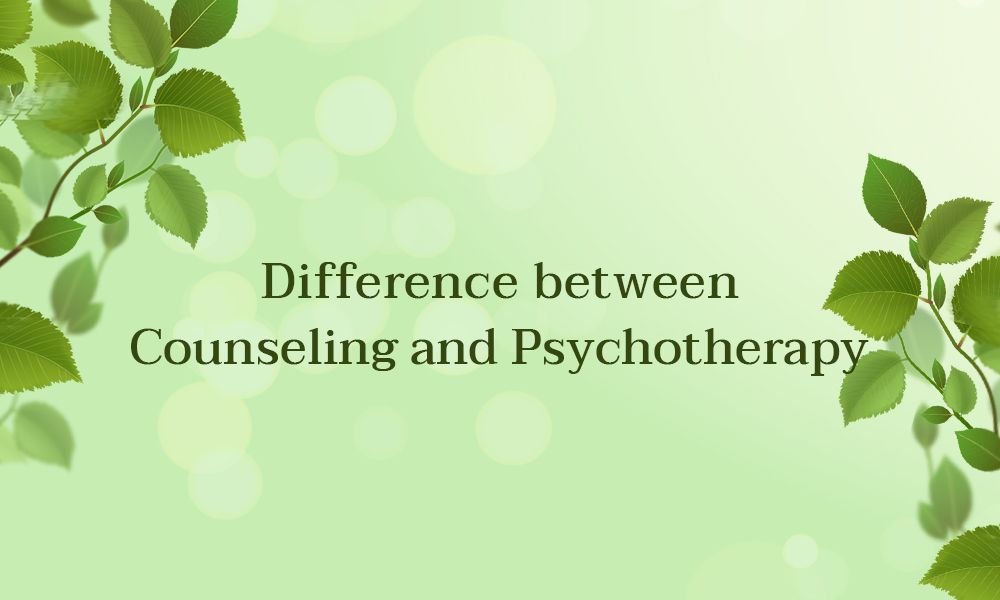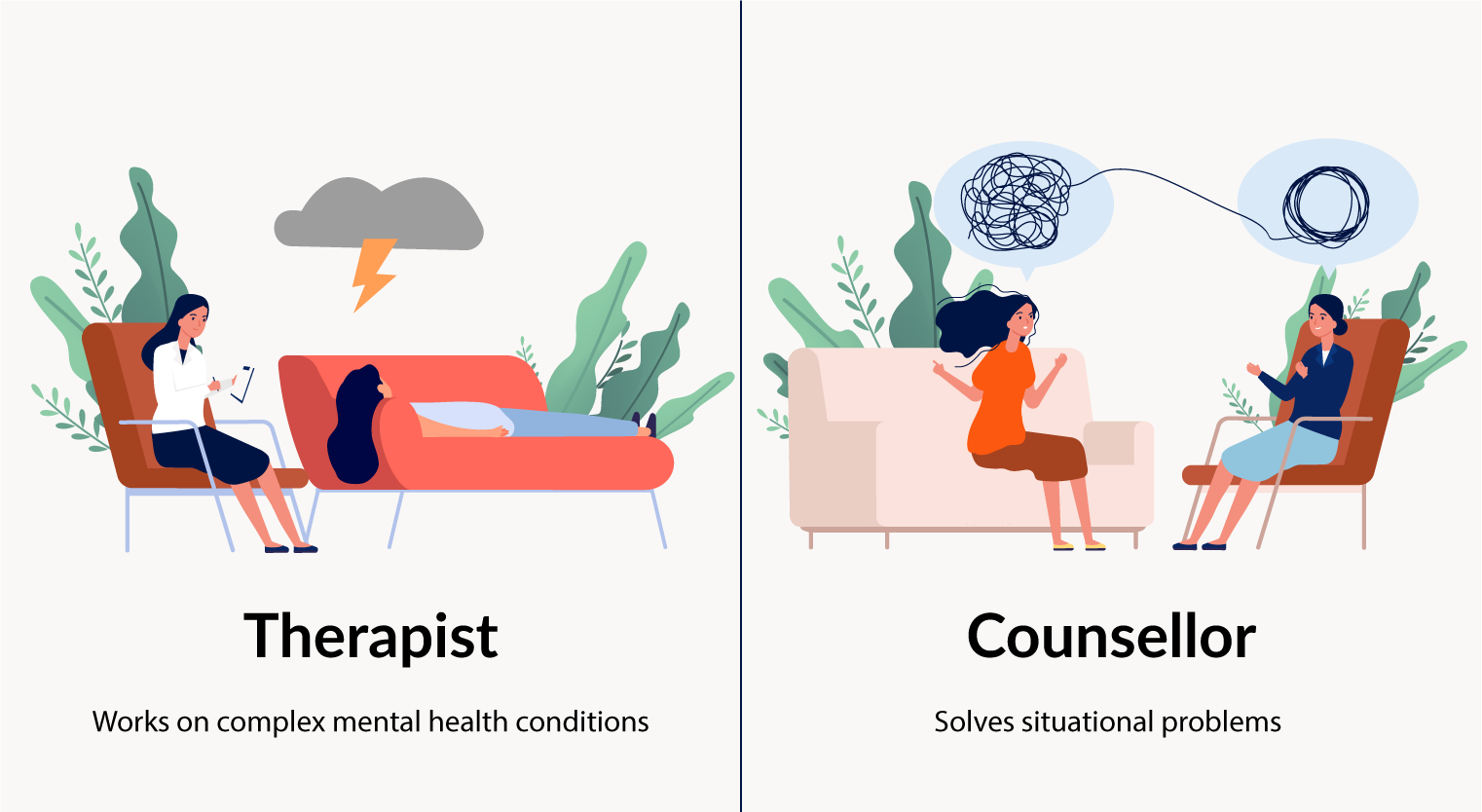- Jofa Tower 5th floor, SB-23, Block 13 C, Main University Rd, Gulshan-e-Iqbal, Karachi.
- +92 322 3746726
- tis@transformation.com.pk
Difference between Counseling and Psychotherapy

Goals of Supportive Psychotherapy
June 27, 2023
The Effectiveness of Psychotherapy for Depression
July 3, 2023Due to their interchangeable use in psychiatry and similarities in a number of elements, counseling, and psychotherapy are two concepts that many people sometimes misinterpret. They do, however, have several noteworthy characteristics that make it easier to tell one from the other. Counseling is a short-term procedure while psychotherapy is a long-term one, which is the main distinction between the two.
If you're considering starting therapy, it's crucial to understand the differences between counseling and psychotherapy. Accepting your need for assistance can be a challenging decision. Once you have decided to seek help, it is important to ensure that you receive the appropriate assistance. Counseling and psychotherapy have certain similarities as well as some distinctive differences. You can decide which kind of therapy is best for you using the information on this page. This article is only a guide because every therapist differs in their approach and level of expertise.
What are Counseling and psychotherapy?
Counseling and psychotherapy are two closely connected disciplines that both fall into the umbrella term "Talk Therapy." The history of talk therapy begins with Sigmund Freud, who is widely regarded as the "father" of modern applied psychology.
A lot of people are aware that Freud is credited with "inventing" psychoanalysis, which involves patients laying on a couch away from their analyst and freely associating with that person, who the patient then "projects" their thoughts onto because they are hidden from view. Since the analyzed (the person being analyzed) knows very little about the analysts' lives and cannot see them due to seating arrangements, the analyst cannot be referred to as a whole person.
The thorough and intentional engagement between therapist and client for the healing, growth or transformation of emotional, physical, relationship, existential and behavioral issues, or of chronic suffering, through well-founded relational processes. The purpose of psychotherapy is to promote greater awareness and autonomy as well as to aid in a client's growth, maturation, effectiveness, and general well-being.
Significant Differences
Counseling:
- Helps people in recognizing concerns and crises and motivates them to take positive steps to address these situations.
- For anyone who already has a basic concept of wellbeing and who is also capable of problem-solving, it is the best therapeutic course of action.
- Counseling is a quick process that promotes behavior modification.
Psychotherapy:
- Helps people with psychological problems that have built up over the course of an extended period of time.
- It will make it easier for you to comprehend your thoughts, feelings, and behavior
- Psychotherapy is a longer-term form of psychotherapy treatment that focuses on finding the emotional roots of issues and difficulties.

How does psychoanalysis relate to Counseling and psychotherapy?
Therapeutic therapies such as counseling, psychotherapy, and psychoanalysis all work to address emotional, psychological, and behavioral issues. Even while they are similar, they also have unique traits and separate historical foundations.
In general, Counseling tends to concentrate on particular problems, present challenges, and useful problem-solving. It frequently places an emphasis on offering support, direction, and coping mechanisms for difficulties including interpersonal conflicts, stress management, professional choices, or personal development. Based on the particular issue being treated, the length of Counseling sessions might vary, but they are normally shorter than those of psychoanalysis.
The term "psychotherapy" is used to refer to a wide range of therapeutic modalities, including cognitive-behavioral therapies, humanistic therapies, psychodynamic therapies (which have roots in psychoanalysis), and others. In-depth emotional and psychological concerns, underlying patterns, and personal development are all explored in psychotherapy. Depending on the complexity of the issues and the person's objectives, it can be both short-term and long-term.
Psychoanalysis maintains a particular therapeutic orientation with a focus on the unconscious mind, early experiences, and the therapeutic relationship, even if Counseling and psychotherapy have grown to embrace a variety of therapeutic techniques and approaches. Although modern psychotherapy and Counseling frequently incorporate various theories and procedures to accommodate the requirements of a wide spectrum of clients, they may nevertheless draw on psychoanalytic concepts.
How can I determine which I need?
Determining whether Counseling or psychotherapy is best for you might be challenging. If you are thinking about the question, it's possible that you are going through a crisis right now, such as a change in your life, a divorce, a death in the family, or you're dealing with stress, worry, or despair.
A term of therapy may be adequate for you if you feel that your issue requires a more present-based intervention—that is if it is an isolated event rather than a repeated pattern in your life or something that links to the past.
However, psychotherapy would probably be a better fit for you if you are worried about how your previous experiences affect your present life, you want to address the deeper causes of harmful ways of thinking and behaving, and you want to examine how you relate to yourself and other people.
And if you have a history of mental health problems, or a diagnosis, then psychotherapy would be the advisable route to take.
While one can use psychotherapy and Counseling as resources to deal with personal issues and enhance their quality of life, they each have unique techniques and approaches in addition to various specific functions.
Psychotherapy & Psychologist Treatment in Karachi
Book An Appointment For Intake sessions / Consultancy/ OPD charges Rs.1000 only/-





